How to enjoy the summer without a holiday?
Many Finns start their restorative and refreshing summer holidays at Midsummer, but what if the whole summer is spent at work? Perhaps a new job has started just before the holiday break, or a summer job keeps you busy through the summer months. The experts at Terveystalo will tell you how to get the most out of summer and recover as part of a normal daily routine, even if the days are spent at work.
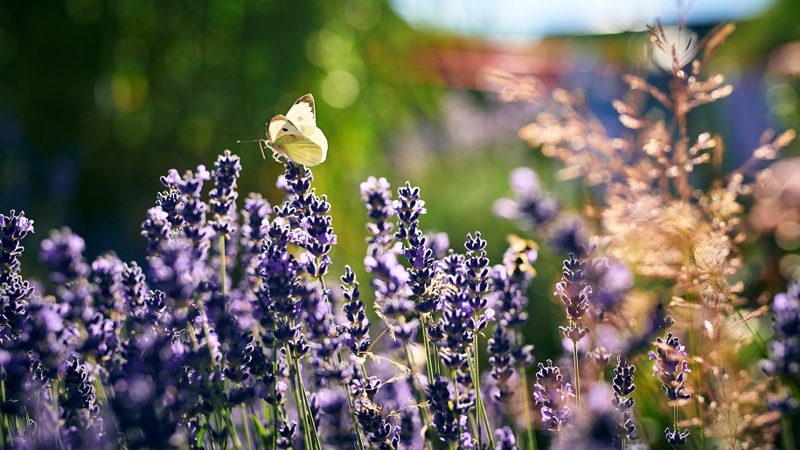
When the summer months are spent working, looking at the calendar can be frustrating and stressful. But stress doesn't have to be a curse word - in the right doses, it's part of our normal daily lives.
– Stress helps us to function and get things done, so we need it in appropriate doses at work too. The fact that we can see short-term stress as a driving force also helps us with stress. More generally, the challenge is more about the lack of balance between stress and recovery, which is important to address in advance, says Aino Kohtala, psychologist and psychotherapist at Terveystalo.
However, even if you don't have a holiday this summer, the summer is not ruined. Annamari Heikkilä, an occupational health psychologist at Terveystalo, points out that there are many good things about working in the summer.
– In fact, summer is a great time to be at work! Especially in office work, there are fewer emails and you can concentrate on your work in peace. Working at your own pace, without a constantly blinking phone and scurrying emails, brings a touch of luxury to everyday life. Concentration can be made easier when you can work at your own pace without interruptions.
– It's worth taking advantage of the slower pace. Summer, when certain tasks are being performed, can be a good time to build in some boundaries and routines for work and recovery from the day's work, making everyday life easier when the pace gets hectic, adds Kohtala.
Making recovery part of everyday life
Especially in hybrid work, where a lot of work is also done from home, it's worth building a transition between work and leisure time and consciously disengaging from work. After a day at work, you can head outdoors and take a short walk as a rite of passage from work to home - even if the starting and finishing points are at the same address. So it's important to build recovery into your daily routine, and not something you only have time for on holidays or weekends.
– Think about the ways and means of recovery that are easy for you to incorporate into your normal rhythm and are likely to be easier to maintain. The important thing is to find a range of recovery methods that suits you and that you can use flexibly in different situations, says Kohtala.
Whenever possible, you should organise time off during the work holidays. A morning swim before work or an afternoon coffee at the marketplace can bring a touch of holiday cheer into the midst of everyday life. If possible, a shorter working day will free up more time to enjoy summer activities.
Especially if there is no holiday at all in the summer, it's worth taking care of your recovery during the working day too. Take enough breaks and extend your lunch break if work allows. It can be easier to enjoy everyday life in summer than in mid-winter. It's worth making the most of it, because everyday life is the spice of life.
Don't skip the holidays altogether
Recovery should be taken care of all year round, not just during holidays. Nevertheless, it's good to take a holiday from time to time, as it's proven to help you get away from work and recover. However, a longer holiday need not be in the summer: many people like to take a break during the darker months of winter.
– It's a good idea to make sure you don't work for too long at a time. Slacking off is good for your creativity, learning and problem-solving skills, and you shouldn't skip holidays altogether. Mini-breaks are also worthwhile - for example, extended weekends throughout the year help you recover better," says Heikkilä.
Here's how you can enjoy the summer even without a holiday
- Make the most of the light summer evenings and enjoy nature. Meet friends after work, spend time in nature and try summer sports. There are plenty of things to do on a bright evening that you can do on holiday.
- Break up your working day with short breaks. If work allows, take a long lunch break on the terrace or in a local park. Go to the market to taste strawberries or eat your lunch outside on the wall at the work site.
- Enjoy the peace and quiet at work. With almost the whole of Finland on holiday, you can concentrate on your work in peace and quiet and have more time to develop your own work.
- Avoid overtime. It's not always possible, but if at all possible, reduce your work to a minimum and enjoy your free time.
Read more occupational health articles

Four relaxation exercises for the whole family for the Christmas rush
Christmas can be a busy and hectic time for families with children. A moment of peace and quiet with your family is an invaluable opportunity to enjoy Christmas.

8+1 ways to improve your energy levels
Are you tired during the day or do you still have high blood pressure in the evening? Try these tips for a better state of alertness, advises doctor Sanna-Tuulia Mattilan from Terveystalo Focus Uni in Tampere.
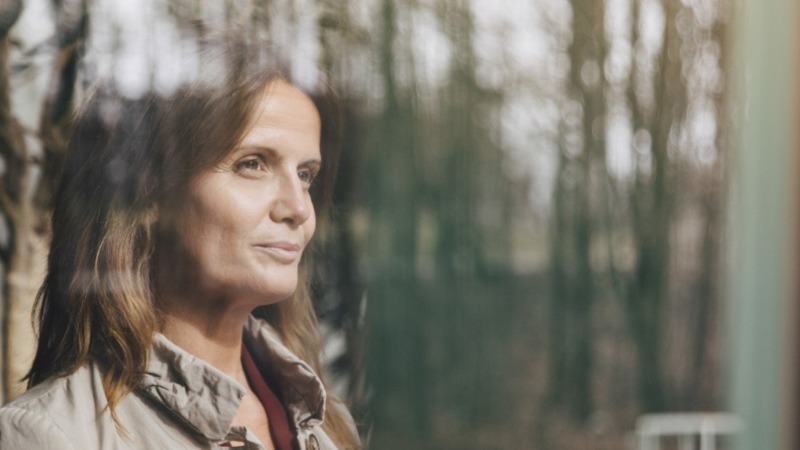
Mental health-related absences reduced by 45% with brief psychotherapy - significant impact on other absences too
A study by Terveystalo* monitored the impact of brief psychotherapy for occupational health clients on sickness absence in 2019-2024.The study found that the use of brief psychotherapy reduced mental health-related sickness absence by 45% and other sickness absence by 19%. The study follows on from a similar study carried out 2 years ago and reinforces the importance of timely access to treatment for mental health symptoms.
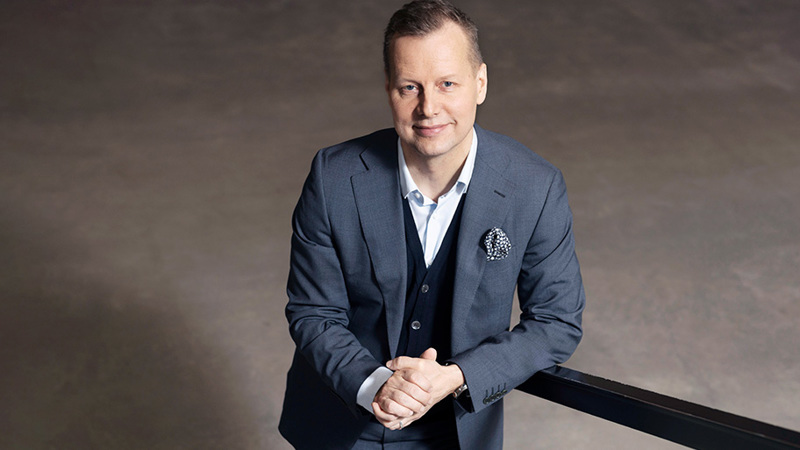
3 megatrends challenge wellbeing management and productivity: 'Fear of the paranoid is ever-present for managers'
The megatrends of the working life revolution and the productivity stagnation they are contributing to can be seen as concrete phenomena in Finnish workplaces. In the midst of the turbulence, both management and employees are wondering. But with good strategic leadership and partnership, human efficiency can be achieved.
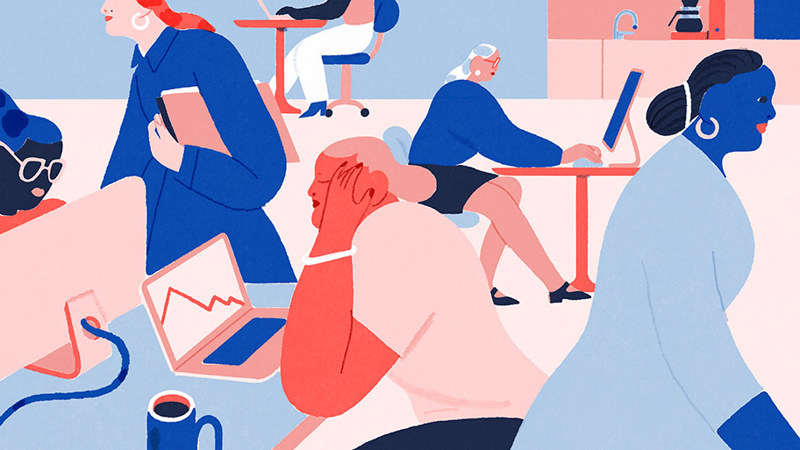
Menopause is a pricey taboo in the workplace
Are menopause the new glass ceiling? If careers are to be extended and full potential unlocked, the impact of menopausal symptoms on work ability and well-being must be taken seriously. Turning a blind eye is discriminatory and comes at a price.
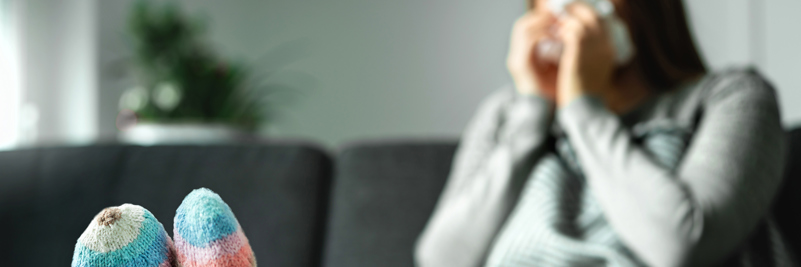
Influenza, Covid-19 or just a common cold – can you tell the difference between the symptoms and when to see a doctor?
The symptoms of influenza, flu and coronavirus can be very similar. Fortunately, you can also protect yourself against influenza with a vaccine.